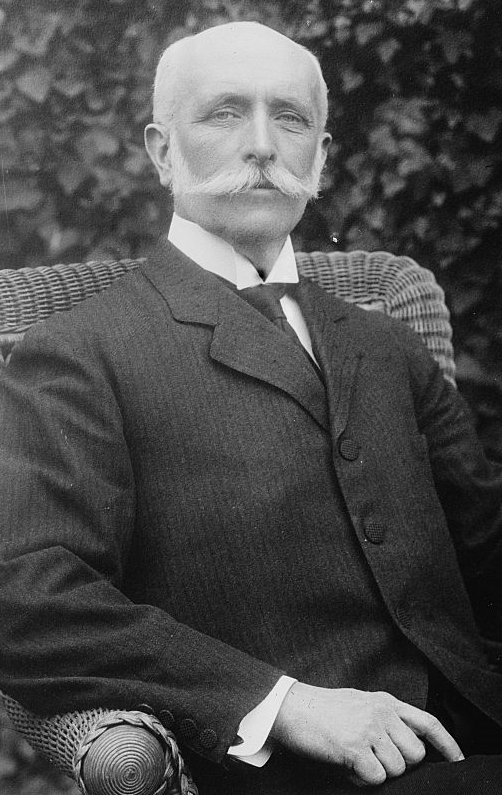President Porfirio Diaz Succeeded by Ernesto Madero Nationality Mexican | Preceded by Matias Romero Resting place Montmartre Cemetery Name Jose Limantour | |
 | ||
Full Name Jose Yves Limantour y Marquet Born 26 December 1854
Mexico City ( 1854-12-26 ) Died 26 August 1935(1935-08-26) (aged 80)
Paris, France | ||
El ministro de las finanzas: José Yves Limantour
Jose Yves Limantour y Marquet (26 December 1854 – 26 August 1935) was a Mexican financier who served as Secretary of the Finance of Mexico from 1893 until the fall of the Porfirio Diaz regime in 1911. Limantour established the gold standard in Mexico, suspending free coinage of silver, and mandating only government coins be used. He secured the national debt in 1899 with a consortium of foreign banks, and at the time of the outbreak of the Revolution, Mexico was on strong financial basis. Before the Mexican Revolution he was widely seen, along General Bernardo Reyes, as one of the stronger candidates to succeed President Diaz.
Contents
- El ministro de las finanzas Jos Yves Limantour
- Early life
- Secretary of Finance
- Exile and death
- Books
- References
Early life
Jose Limantour was born on 26 December 1854 in Mexico City, Mexico. His parents were Joseph Yves Limantour, a ship captain from Brittany, France, and Adele Marquet, who came from Bordeaux. The Limantour family grew wealthy through land speculation in Baja California and Mexico City when the Liberals seized church property, redistributing land. After private primary schooling in Mexico, Limantour went to Europe at 14. There he attended the National Preparatory School. He received a law degree with specialized studies in economics and management. He returned to Mexico at the inception of Porfiriato, teaching at the School of Commerce and the National School of Jurisprudence. He also wrote for the legal journal El Foro (The Forum) from 1877 to 1882.
Secretary of Finance
After the death of Matias Romero Rubio in 1895, Limantour was considered the political leader of the technocratic advisers to President Diaz known as cientificos ("the scientists"), who were highly educated and wanted expanded intellectualism and prosperity in Mexico. They supported the Diaz regime because of its efforts to modernize the country, yet they also wanted expanded freedom.
As Secretary of Finance, he expanded foreign investment into Mexico, supported free trade, and balanced the budget for the first time and generated a budget surplus by 1894. However, even with the economic prosperity of Mexican business, the common people of the country suffered because of the rising cost of food.
Towards the end of the Diaz regime, the president felt that Limantour was becoming too powerful, and thus he sent him to Europe to negotiate loans. Then, with the pending military collapse of the Diaz regime, he returned to Mexico and encouraged Diaz to resign. He negotiated Diaz's 1911 exit from Mexico into exile in Paris.
Exile and death
A week after Diaz set off to Europe, Limantour left for New York City by train. He arrived to Paris in July 1911, while the former dictator was resting in a seaside resort at Deauville. They exchanged letters, but they rarely met during their first months living in Paris, as Diaz resented reports that Limantour had attempted to negotiate his eventual reincorporation in the federal cabinet with the revolutionary leader, Francisco I. Madero,
Limantour had strong ties with the Madero family, as he had served as their trade agent in Mexico City. In the end, however, Madero chose his uncle Ernesto, an experienced banker from Coahuila, as his secretary of Finance and Diaz and Limantour were eventually reconciled.
Limantour remained in France for the remainder of his life. He became a member of the Academie des Sciences Morales et Politiques and was named a grand officer of the French Legion of Honor. He died in Paris on August 26, 1935, largely forgotten.
